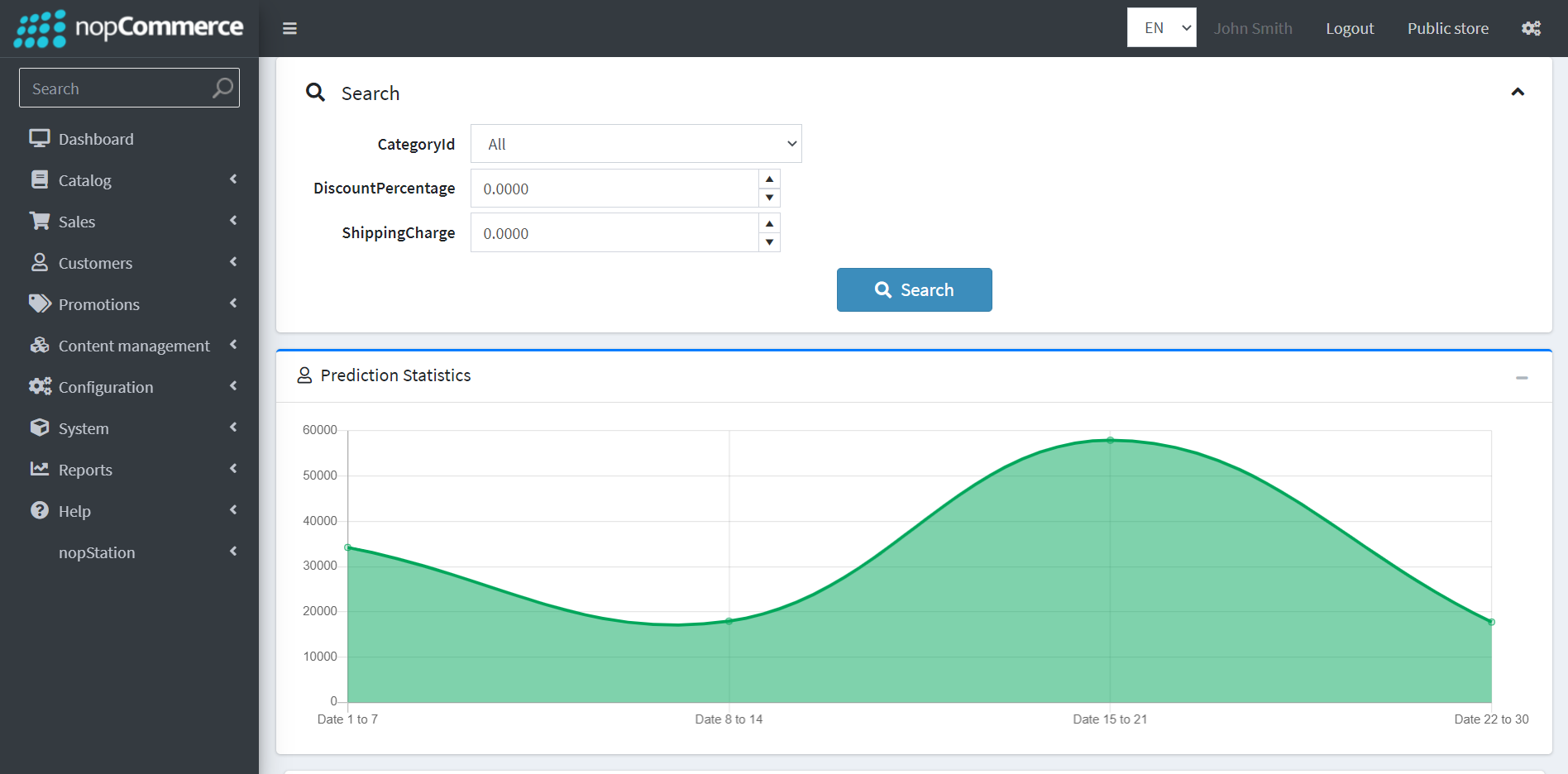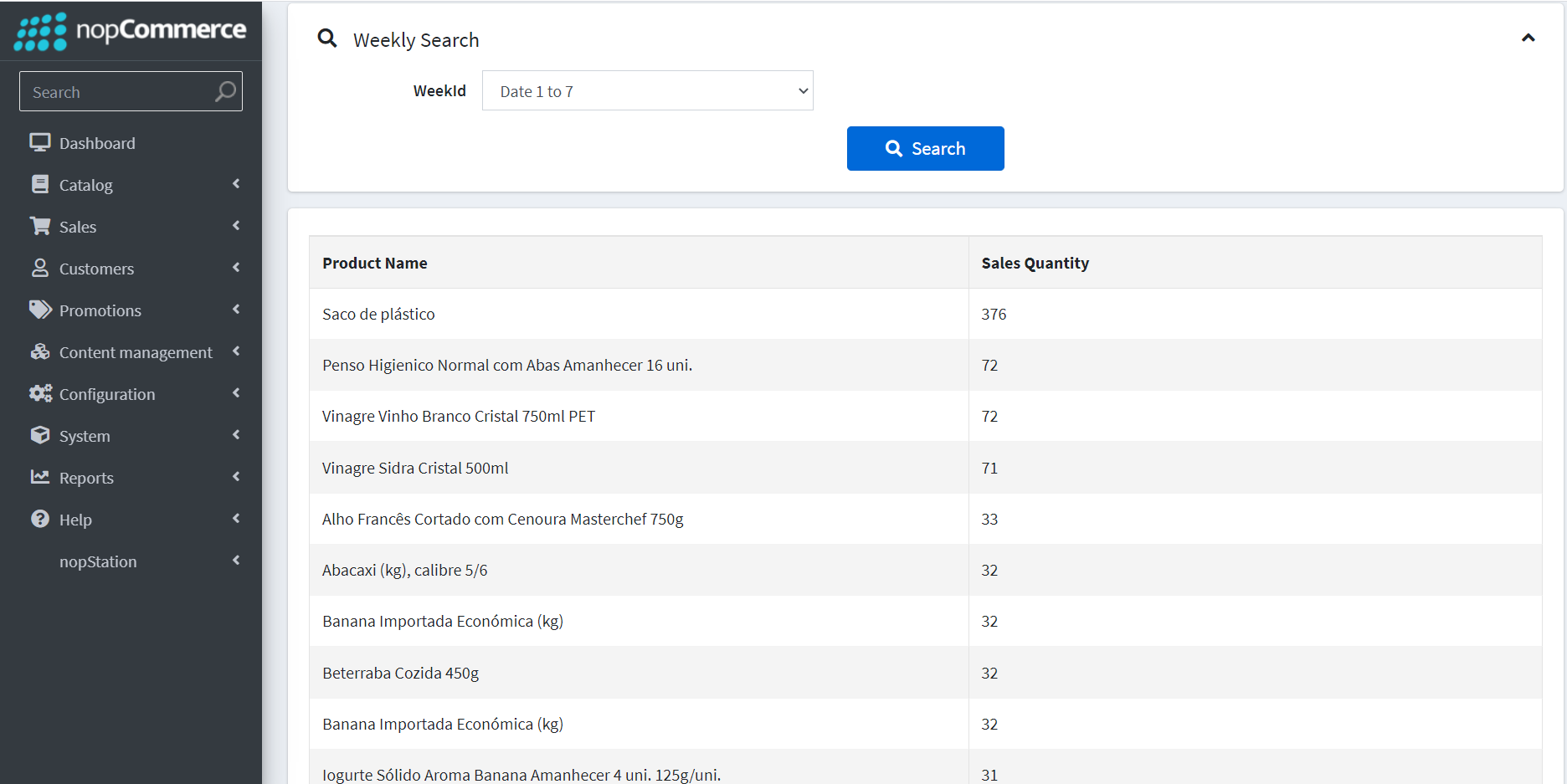As we want to predict demand from historical data, we choose nopCommerce where we easily get it. nopCommerce is an open-source eCommerce platform that has various features for an eCommerce site. Inside any eCommerce solution orders and products, features are most important. For preparing the training model, the dataset is taken from orders, order-Item, and product table from the nopCommerce Database. More than 3, 000 orders and more than 10, 000 and 18, 000 products datasets are pre-processed to train the model.
To implement a machine learning algorithm, we use ML.Net and ML.FastTree. After training the ML model, we saved it to the plugin folder. After this, we load the trained model when we predict from nopCommerce real data.
Below, I have shared the working procedure of our proposed model and the user interface of the prediction result.

